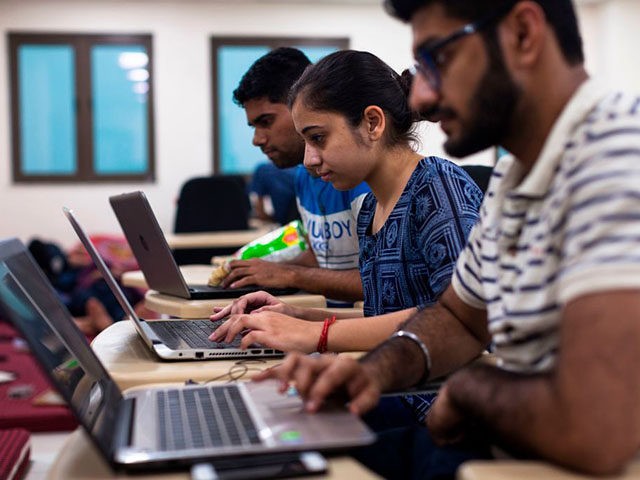The Wall Street Journal (WSJ) reported on Wednesday that India is the world leader in shutting down Internet access, coming in ahead of heavyweight access-blockers like Iran, Libya, and Sudan with 84 regional shutdowns in 2022.
In fact, India accounted for over half of all Internet shutdowns detected around the globe by a digital rights group called Access Now, which began tracking access blockages in 2016.
Last year was especially bad because of the unrest in Manipur, a province of India tormented by tribal warfare. Indian officials shut down the Internet in Manipur soon after the latest round of violence began in May, and was only partially restored in July, albeit with heavy monitoring and continuing bans on mobile Internet and wifi.
India’s blockade on Internet access in Manipur was blamed for suppressing a shocking video that showed two women from the Christian Kuki tribe being paraded naked through the jungle and then sexually assaulted by a mob. The incident occurred in early May, but was not made public until July because of the Internet blockage, a delay that made it more difficult to identify and apprehend the perpetrators. Seven arrests were eventually made in connection with the assault, including the youth who filmed it.
“The Manipur shutdown crippled the ability for information to reach the rest of the world. If we had seen the videos hidden from us for almost 80 days back in May, we could have reacted to it sooner,” Indian technology lawyer Mishi Choudhary told Time in August.
Manipur takes a back seat to Kashmir for the longest Internet shutdown in India, and indeed the entire world. Internet access was blocked in Muslim-majority Kashmir in August 2019, and was only partially restored 552 days later, thanks to an order from India’s Supreme Court.
Other heavy shutdowns were ordered during the farm protests of 2020-2021, Hindu-Muslim tensions in western India in 2022, and the manhunt for Sikh separatist leader Amritpal Singh in early 2023.
Choudhary described India as “the most brutal censor of the Internet in the democratic world,” citing reports from digital rights groups that have awarded India that dubious distinction for the past five years running. As bad as 2022 was, India had already surpassed its number of Internet blocks by June 2023.
In addition to regional blockades on Internet access, India frequently blocks individual websites and social media accounts – almost 7,000 of them last year, according to Access Now. Time pointed out that the Indian government does not publish statistics on Internet shutdowns, and the Ministry of Electronics and Information Technology claims it does not keep them. All of the data on India’s Internet restrictions comes from outside watchdog groups.
Most of India’s Internet major shutdowns are imposed by the government during times of unrest, as in Manipur and Kashmir, but Time cited a report from the Internet Freedom Foundation and Human Rights Watch that found a third of the disruptions between 2020 and 2022 were imposed to prevent students and civil servants from cheating on exams.
The WSJ focused on the heavy costs of Internet shutdowns, which fall heavily upon India’s poor, and sharply contradict Prime Minister Narendra Modi’s “Digital India” initiative, under which he pronounced connectivity to be “as much a basic right as access to school.”
“Digital India” included a massive push to make mobile Internet access more affordable and get Indians to use digital commerce platforms. Shutting down the Internet yanks away the digital rug that all of those people were persuaded to stand upon, and wreaks havoc on small entrepreneurs who rely heavily on online business information and payment systems. The entire business model for enterprises like ride-hailing and food delivery services collapses when Internet access is blocked.
Shutdowns are also brutal on poor Indians who use online systems to collect subsidies, rural workers who receive their paychecks online, and startups hoping to lure foreign investment. The total economic damage from Internet shutdowns is approaching $5 billion, according to digital rights groups.
Digital rights advocates point out there is little evidence that Internet shutdowns actually help to quell unrest, especially since they tend to impose additional hardships on restless populations, giving them fresh reasons to be angry at each other and the government.
In June, the United Nations Human Rights Office reported on the suffering from Internet shutdowns and urged all member states to refrain from using such techniques.
“Shutdowns are powerful markers of sharply deteriorating human rights situations,” the U.N. warned.
The U.N. also made the point that Internet blockages are counterproductive because they cause “fear and confusion,” increase “risks of division and conflict,” deepen “digital divides” between segments of society, and inflict “economic shocks” on populations that cannot bear them.
“At least 27 of the 46 least developed countries have implemented shutdowns between 2016 and 2021, most of which have received support to increase connectivity,” the report grimly observed.

COMMENTS
Please let us know if you're having issues with commenting.